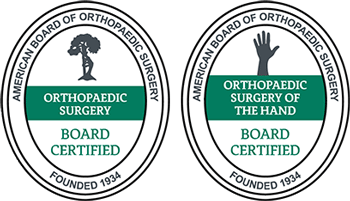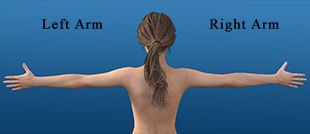Are Steroid Injections the Right Way to Treat Carpal Tunnel?

Carpal tunnel syndrome is a condition that affects millions of people every day, with new diagnoses occurring daily. Depending on the disease’s severity, there are several treatment options, including rest, icing, stretching, over-the-counter medication, physical therapy, and even surgery in extreme cases. Another treatment option that is not as well-known is receiving steroid injections.
Steroid injections are placed in the carpal tunnel to relieve the pain associated with carpal tunnel syndrome temporarily. The injections are meant to ease the median nerve pressure, which causes pain from the swollen tendon. It is unnecessary for everyone who suffers from carpal tunnel syndrome, but it is an option for those who have had little to no relief from conservative treatment.
Carpal Tunnel Syndrome
Carpal tunnel syndrome occurs when the median nerve, which runs down the arm’s length–becomes irritated. This irritation to the nerve causes inflammation, and the inflammation causes pain. The pain becomes much more difficult for the bones, nerves, and tendons to glide appropriately during movement. Carpal tunnel syndrome symptoms include weakness in the afflicted hand and wrist, tingling, pain, and numbness. The symptoms occur from the pressure on the median nerve when the hand and wrist are in motion. Numbness and tingling are hallmark symptoms of carpal tunnel syndrome. The median nerve does not extend to the pinky, so it is likely carpal tunnel if the fingers are numb and tingly.
Carpal tunnel syndrome is chronic and caused by repetitive movements rather than an acute injury like a broken wrist. A chronic condition happens gradually rather than suddenly. This condition is commonly seen in individuals who work sedentary desk jobs or even piano players and truck drivers. When the body repeats the same movements for an extended period, the muscles, nerves, and tendons become tired. Microtears occur with each repetitive motion, leading to the irritation and inflammation associated with the dreaded condition.
If left untreated, carpal tunnel syndrome will worsen. It may start as a naggy ache that is quickly relieved by a shake of the hands or rest. Eventually lingers throughout the day and even into all hours of the night. It is possible that it will wake you during the night and that your hand and wrist are stiff in the morning. Rest is a great relief if it can be managed, but it is not always possible. If you suspect you have carpal tunnel, it is essential to talk to your doctor about treatment options.
Steroid Injections, Benefits, and Side Effects
Not all individuals suffering from carpal tunnel syndrome are referred to a facility that can provide steroid injections. Individual shots like cortisone shots can be used for various ailments such as tendonitis, tennis elbow, arthritis, trigger finger, and shoulder injuries.
Cortisone is an anti-inflammatory that your body has already produced and is not the same as anabolic steroids that bodybuilders and athletes sometimes take to enhance their performances. The results of these steroid injections are unfortunately not always immediate and may take a few days. The benefits, however, should last for several weeks. Whether one steroid injection will relieve or resolve your wrist pain entirely depends on several factors and the severity of your condition. Due to the complex nature of aches and injuries, there is no magic number that will wholly stop your pain. For some patients, one steroid injection is all they need. For others, especially patients who have a long history of pain, it may take various injections, and your doctor may even place a limit on the number of injections you receive. Too many steroid injections can damage cartilage and tendons, which will only make the problem worse.
Like most treatments, steroid injections often come with side effects. The most common is experiencing a flare, which may be felt for a day or two after receiving an injection at the injection site. Thankfully they are easy to treat with rest and applying ice.
Other side effects include rising blood sugar levels, which can be dangerous for diabetic patients, skin thinning and weakening tendons, potentially harmful allergic reactions, and infections. Allergic reactions and infections are rare but can be extremely serious. If you are experiencing extreme pain, a fever, or redness at the site of the injection, call your doctor right away.
There are risks with receiving steroid injections that your doctor should discuss with you. These include damage to the cartilage or nerves, weakening the tendons leading to rupture, facial flushing, and whitening on the skin around the injection site. It’s essential to monitor the area to ensure you are not experiencing adverse side effects.
When receiving your injection, the site will be cleaned and sterilized. You will likely receive an anesthetic to numb the skin where the needle will be inserted. Once the needle is inserted into your skin, you will feel the needle’s pressure, which can be uncomfortable for many. The medication is inside the syringe and thus released into your body. Cortisone shots usually include corticosteroid medication to help relieve pain and inflammation. After receiving your cortisone shots, ensure you take care of the injection site and avoid lifting heavy objects, the hot tub, and strenuous activity.
Conclusion
Carpal tunnel syndrome affects millions of people every day, so you are not alone. Depending on the severity of your condition, various treatment options will best fit your needs. If your pain is relatively new, rest and stretching may be enough to alleviate your symptoms. If your pain has lasted several weeks and become chronic, however, a more aggressive approach may be needed.
Your doctor can perform tests to determine whether your wrist pain is associated with carpal tunnel syndrome and recommend the proper treatment. Steroid injections are great options for patients who have tried conservative therapy such as wrist braces, rest, ice, and physical therapy and are still suffering from pain. They can provide relief that lasts several weeks or months and may even completely resolve the issue.

























